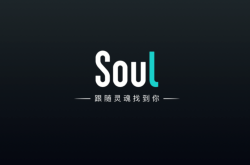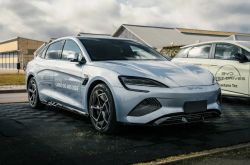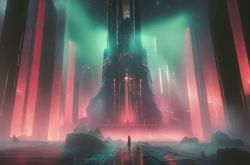Zhejiang Entrepreneurs Dominate China's Best CEO List: Why Can They?
![]() 07/24 2024
07/24 2024
![]() 684
684
We watched them build skyscrapers, host banquets, and then watched their towers crumble.
Recently, Forbes officially released the "China's Best CEOs 2024" list. Among them, 11 CEOs returned to the list, 15 were selected consecutively, and 24 were selected for the first time. Post-80s CEOs also reached a record high of 6, triple the number from last year.
Behind the changes in this list, how many business truths are hidden?
Outstanding Achievements by Zhejiang Entrepreneurs
Of the 50 companies on the list, the Yangtze River Delta region accounts for one-third of the total, with a total of 18 companies from Shanghai, Jiangsu, Zhejiang, and Anhui making the cut. Among them, there are 8 companies each from Shanghai and Zhejiang, and 1 each from Jiangsu and Anhui.
If we include Yang Yuanqing of Lenovo Group and Zhu Zhaojiang of Transsion Holdings, both of whom are Zhejiang entrepreneurs but based outside the province, a total of 10 Zhejiang entrepreneurs are on the list, accounting for 20% of the total and ranking first in the country.
The fields covered by these 10 companies are also very diverse, including internet, beverage consumption, daily necessities, electrical components and equipment, auto parts and equipment, environmental and facility services, basic chemicals, industrial machinery, and communication equipment.
Zhejiang has always been China's most developed commercial province, supporting the growth and development of labor unions and legendary entrepreneurs. With their vision and innovation, they have built business empires, accumulated astonishing wealth, and driven the progress of the entire Chinese economy.
Among the top 10 best CEOs, two are from Zhejiang: Zhong Shanshan, CEO of Nongfu Spring, and Ding Lei, CEO of NetEase.
Born in 1954 in Shaoxing, Zhejiang, Zhong Shanshan worked as a mason, carpenter, and journalist before selling water. He ventured to Hainan, grew mushrooms, and worked as a reporter. Due to his outstanding leadership of Nongfu Spring in the consumer sector, he has consistently ranked among China's richest individuals.
Also noteworthy is Yang Weidong, Chairman and CEO of Satellite Chemical, who has made the list for the second time since 2022.
As a leading player in the domestic light hydrocarbon industry chain, Satellite Chemical is committed to becoming a low-carbon chemical new material technology company, deepening its "technology leadership" and "management leadership." The company plans to invest 10 billion yuan in R&D, 1 billion yuan in innovation incentives, and build a team of 2,000 R&D personnel within five years to address a series of national technology bottlenecks.
With the successive commissioning of light hydrocarbon integration projects, Satellite's hydrogen production capacity is expected to exceed 400,000 tons per year, making it the largest hydrogen supplier in East China.
Gathering of "Heroic Male Protagonists"
What qualities does an outstanding CEO need to possess? Renowned enterprise research expert Chen Chunhua summarizes four aspects:
First, a strong sense of dream and mission. Second, a deep understanding of business essentials and the ability to manage strategic variables. Third, they are particularly willing to accept challenges, crave challenges, and possess combativeness. Lastly, they develop themselves and others.
"Today, we see that those outstanding entrepreneurs and managers are truly driven by mission and dream, so they are less susceptible to external distractions," said Chen.
To boost morale and inspire ambition, one "heroic male protagonist" after another has emerged on the path of pursuing dreams.
Born in 1987, Wang Ning, CEO of POP MART, is the youngest self-made founder ever on this list.
After POP MART's listing, Wang Ning often mentioned, "We started with A, tried B along the way, but succeeded with the blessing of C, and may eventually become great in D."
"Years ago, we described our brand vision in the prospectus: to become a globally influential trend culture and entertainment company. This has never changed."
Ye Guofu of MINISO is another masterful manager who diligently writes letters to his employees, always emphasizing passion and perseverance.
"The culture of striving at MINISO is not a culture of sacrifice or hardship, but one that encourages high-quality and valuable creation. When selecting talent, we prioritize those with a striving spirit, followed by those who can create value. The two complement each other and are indispensable. Thirdly, we don't let strivers suffer. As a company, we want to make strivers happier and foster a genuine love for what they do."
The ultimate "heroic male protagonist" must be Lei Jun of Xiaomi.
On the evening of July 19, the annual Lei Jun Annual Speech was held at the Beijing Shougang Park Ice Rink, attracting a large crowd. In front of a giant screen bearing the theme of the speech – "Courage" – Lei Jun strode out and waved to the audience. Throughout the 3-hour live broadcast, the number of online viewers in Lei Jun's Douyin livestream remained above 100,000.
When Lei Jun unveiled the "Xiaomi SU7, a dream car designed and built for strivers," the entire venue erupted in applause. "Continuous exploration, growth, and victory. Courage is our best response to this era."
Moreover, Lei Jun's "rebuttal" to the "heroic male protagonist" narrative is equally inspiring: In reality, life is never a smooth ride but a series of difficult breakthroughs.
How Different Are Chinese and Foreign CEOs?
Coincidentally, shortly before this, Barron's released its list of Top CEOs for 2024 (sorted alphabetically by surname):
More than half of the companies represented by the CEOs on this list are somehow involved in the current AI investment boom – selling chips, buying chips, providing computing services, or applying algorithms to advertising or pricing.
Jensen Huang, founder of NVIDIA, is a prime example. Huang focuses on integrating hardware and software and has cultivated a vast community of developers and user-experts.
At NVIDIA, Huang has three architecture teams working simultaneously: one for the current chip, one for next year's upgrade, and a third for future chip development. Coupled with a significant development budget, NVIDIA has technologically outpaced its competitors for several years. Recently, NVIDIA has become the most valuable company in the US, reaching the pinnacle of the AI market.
Among the legendary figures driving AI development, besides Huang, there is another heavyweight figure renowned alongside him: Lisa Su, CEO of AMD, known as the "Queen of Chips."
Born in Tainan, Taiwan Province, China, Su immigrated to the US at the age of 3. She earned her bachelor's, master's, and doctoral degrees in Electrical Engineering from MIT and now heads chip giant AMD with an annual salary of $58.5 million. This figure not only far surpasses that of countless industry titans but also ranks her among the top female CEOs globally.
In contrast, consumer companies account for a significantly higher proportion on China's Best CEO list.
According to the list, the top 10 Chinese CEOs on the Forbes China's Best CEOs list are Lei Chen and Zhao Jiazhen, co-CEOs of Pinduoduo; Lei Jun, CEO of Xiaomi; Zeng Yuqun, CEO of CATL; Wang Chuanfu, CEO of BYD; Sun Jie, CEO of Ctrip; Fang Hongbo, CEO of Midea Group; Cao Renxian, CEO of Sungrow Power Supply; Li Huagang, CEO of Haier Smart Home; Zhong Shanshan, CEO of Nongfu Spring; and Ding Lei, CEO of NetEase.
Each era has its own entrepreneurs. No one can go against the tide of the times. It is foreseeable that the China's Best CEO list will undergo tremendous changes in the coming years.





